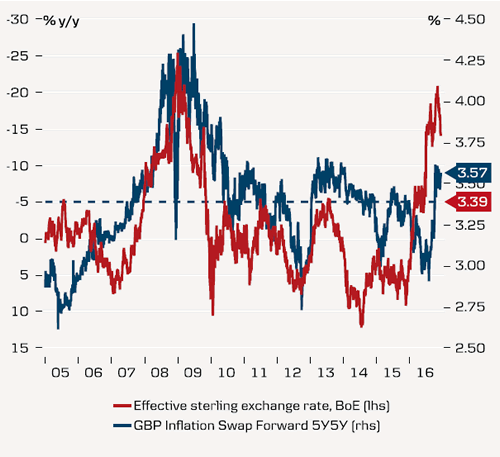BoE to stay on hold – risks to EUR/GBP skewed to the upside
We do not expect Bank of England (BoE) to make any policy changes at its March meeting. We expect BoE to maintain the Bank Rate at 0.25%, while leaving the targets for the stock of government bond purchases (APF) and the stock of corporate bond purchases (CBPS) unchanged at GBP435bn and GBP10bn, respectively. We do not expect any changes to the Term Funding Scheme (TFS) either.
We expect BoE to maintain its neutral stance by repeating it can move ‘in either direction’.
We still expect the BoE to remain on hold for the next 12 months. While we think it is unlikely the BoE will tighten monetary policy in a time of elevated political uncertainty, we think we need to see substantially slower growth and/or higher unemployment before easing becomes likely again. Also, BoE Governor Mark Carney has said that one of the reasons the UK has been resilient to Brexit uncertainties so far is due to the significant monetary easing from the BoE.
Note that the BoE reaction function has changed since the financial crisis: BoE puts more weight on growth/unemployment relative to inflation (see also a speech by former Monetary Policy Committee member Martin Weale here, 18 July 2016). In our view, BoE seems to be more worried about slower growth than too-high inflation if this is only temporary.
EUR/GBP has reached our 1-3M target of 0.87 and we are currently reviewing our forecast. We still see risks skewed to the upside for EUR/GBP in the coming months ahead of and after the triggering of Article 50.
Three main triggers for BoE
The summary of the last BoE meeting contains three main triggers for changes to the BoE’s current monetary policy stance.
- CPI inflation.
- Wage growth.
- Private consumption.
Higher CPI inflation and/or higher wage growth than currently expected would increase the likelihood of a hike.
Slower private consumption growth than expected would increase the likelihood of a cut.
Markets price in a small probability of a hike already this year
First full BoE hike priced in by summer 2019
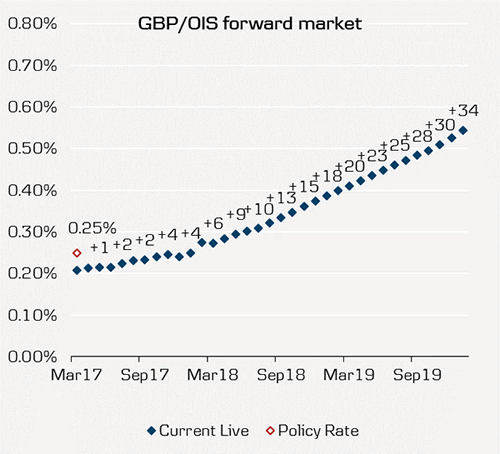
Softer BoE pricing in recent months
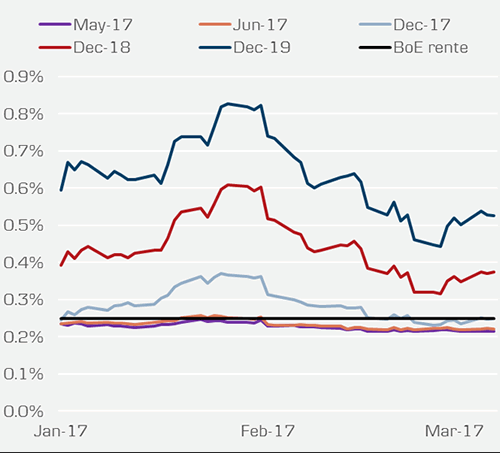
BoE February projections
BoE expects CPI inflation to move higher from here
In the latest inflation report, BoE projected CPI inflation to increase significantly from here due to the weaker GBP, which has pushed up import prices.
It expects inflation to peak around 2.8%.
BoE expects the overshooting of inflation to be temporary, i.e. it expects inflation to fall back to 2% beyond the forecast horizon.
Inflation expected to move above the 2% target
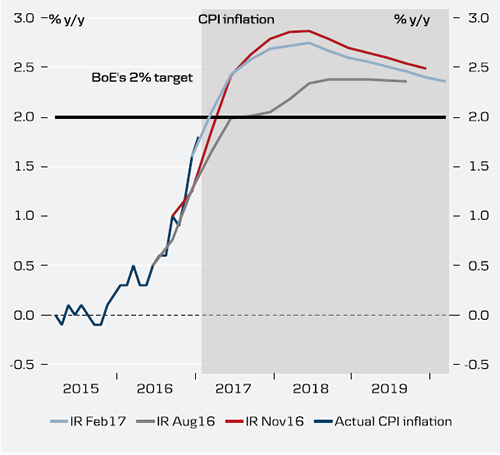
BoE expects GDP growth to slow in coming years to around 1.5%
BoE projects GDP growth to slow in coming years due to
- slower private consumption growth
- slower business investments.
We are more pessimistic on GDP growth than the BoE.
BoE still expects growth to slow
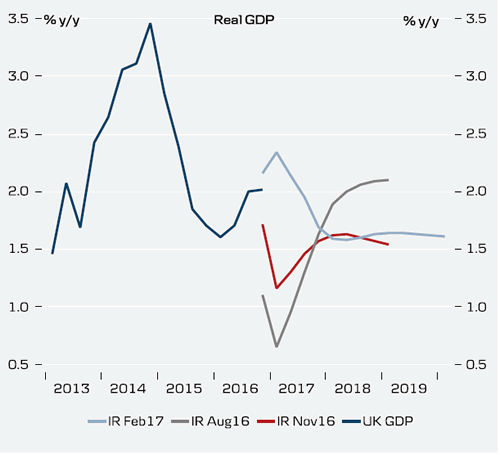
BoE expects unemployment rate to stabilise above NAIRU
The BoE no longer expects the unemployment rate to rise significantly as in previous inflation reports.
One reason is that BoE has revised down its NAIRU estimate from 5.0% to 4.5%, i.e. there is currently more slack left in the labour market than previously estimated.
BoE has lowered its NAIRU estimate from 5.0% to 4.5%
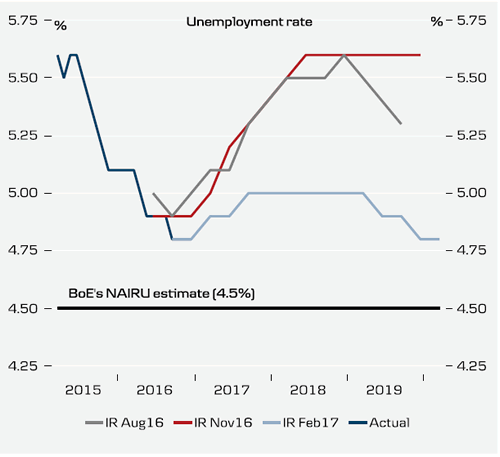
Macro charts
GDP growth has been resilient to Brexit uncertainties
GDP growth continued at same pace in H2 16…
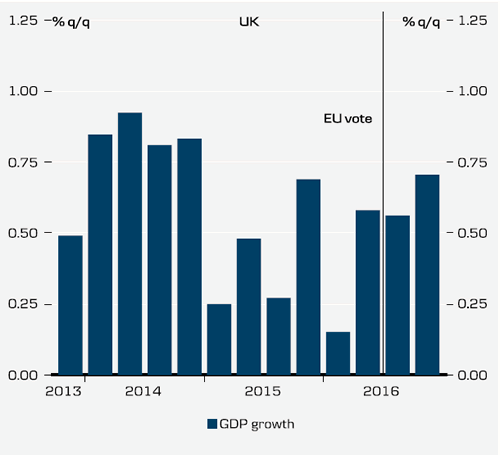
… but growth seems to have slowed in Q1 17
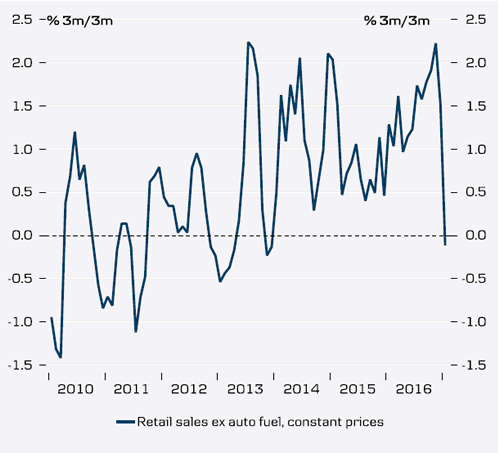
PMIs suggest Q1 GDP growth in the range of 0.3%-0.4% q/q
PMI composite has fallen but is still strong
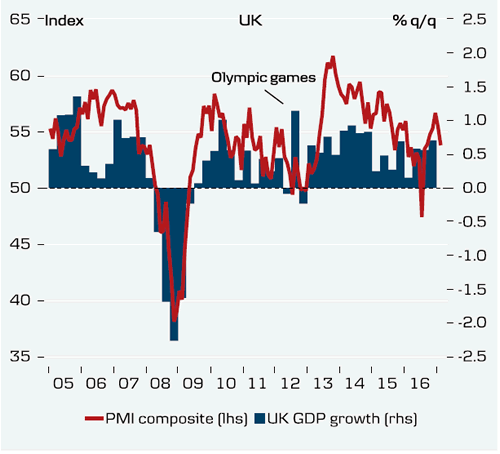
Unemployment rate has stabilised at low levels
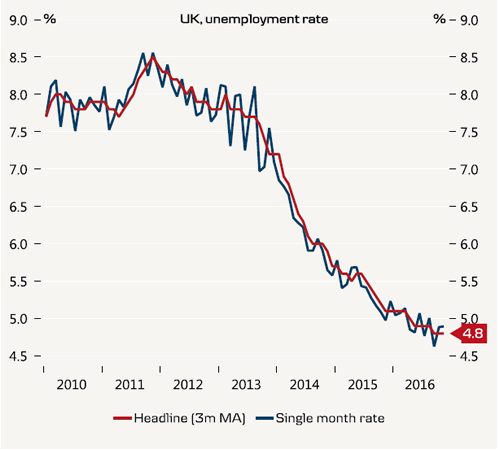
Inflation expected to rise supported by weak GBP
CPI inflation set to increase to close to 3%
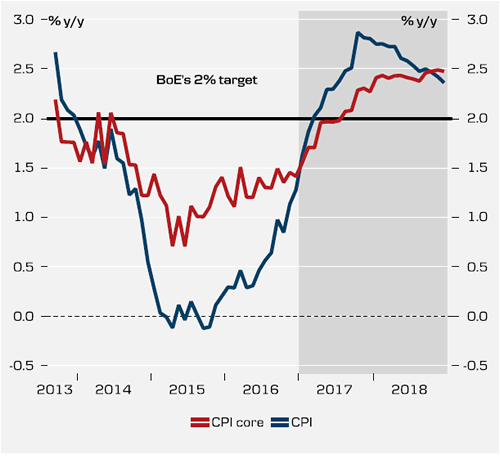
Weaker GBP implies higher import prices
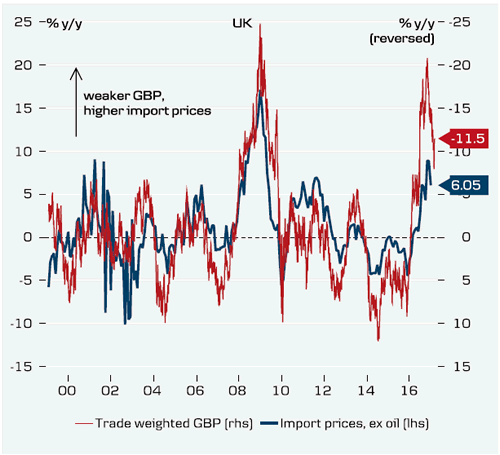
End of food and energy deflation
Higher food prices
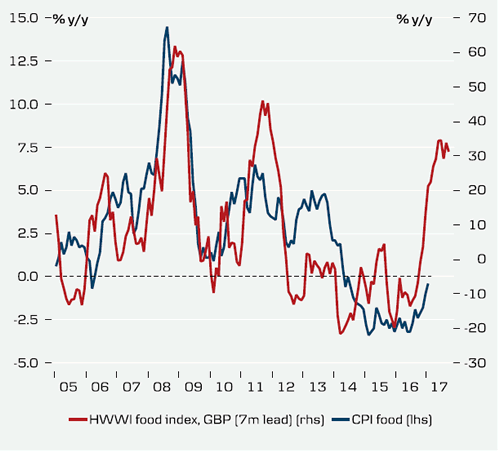
Gasoline prices have stabilised
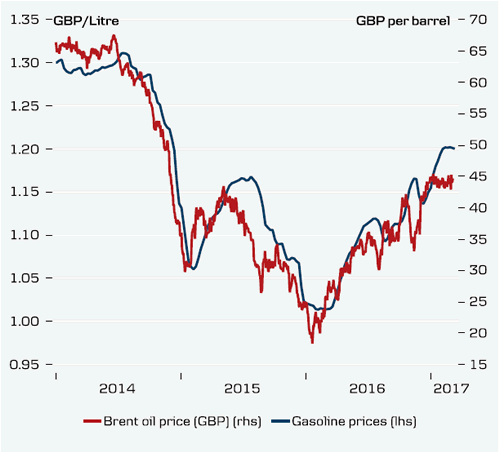
Inflation expectations have rebounded
Inflation expectations have risen significantly
